When a football player makes a tackle or game-winning catch in the end zone, they may walk off the field with a damaged jersey. However, the next week, the players return with jerseys that have been sewed up and repaired.
The seamstresses at Community are behind the stitches.
Community is a boutique in downtown Athens, Georgia, that focuses on sustainable fashion, locally made products and alterations.
Every week, the boutique receives up to 30 jerseys that need a repair, from tiny punctures to large tears. Community’s seamstresses sew them up and return them to the Georgia Football team.
Why It’s Newsworthy: Georgia football has almost finished its 2023 season, so the players’ jerseys have seen some action. University of Georgia Athletics supports a local business for their repairs which, in turn, supports sustainability.“They’re very rough on their jerseys, so every game, there’s something that comes in from small holes to very big tears,” said Maddie Arena, a seamstress at Community.
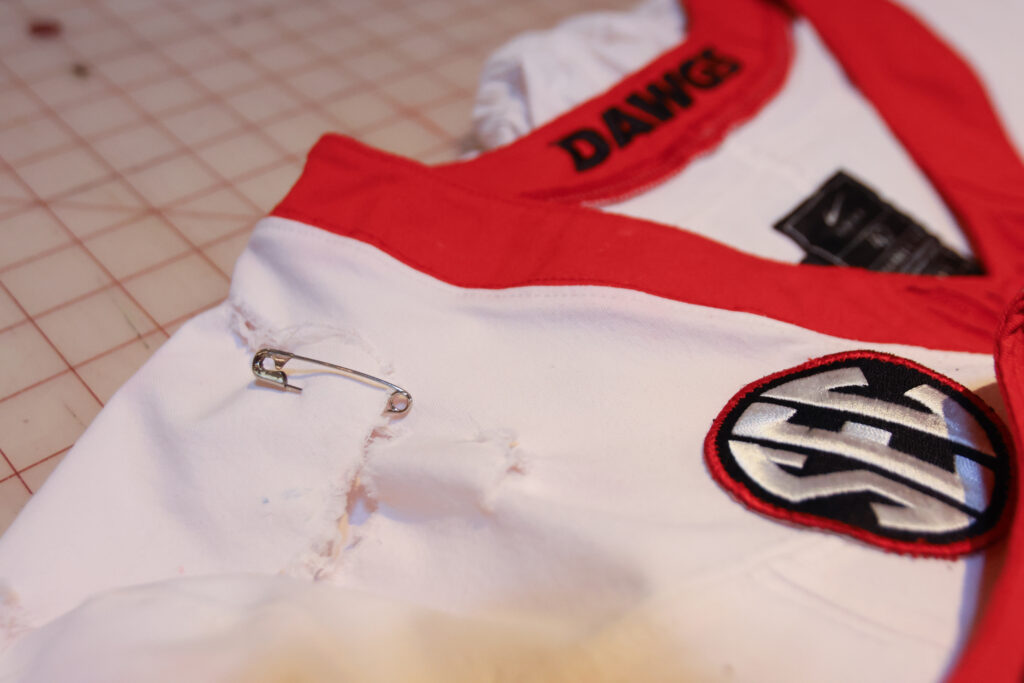
Why Repair the Jerseys?
This work prevents damaged jerseys from being retired or discarded. According to Sha’mira Deanne Covington, assistant professor in fashion in the University of Georgia College of Family and Consumer Sciences, mending clothes doesn’t just extend the garment’s life; it changes a person’s perception with the article of clothing.
“You kind of have this psychological interest in this particular garment, and you’re more likely to care for it longer,” Covington said. “So, our relationship to the garment changes. It’s not as disposable.”
Owner of Community and German native Sanni Baumgärtner echoed this sentiment.
By repairing the jerseys every week, they really become more special and valuable because they really show the battle scars of the games,” Baumgärtner said. “It’s almost like a memory map.”
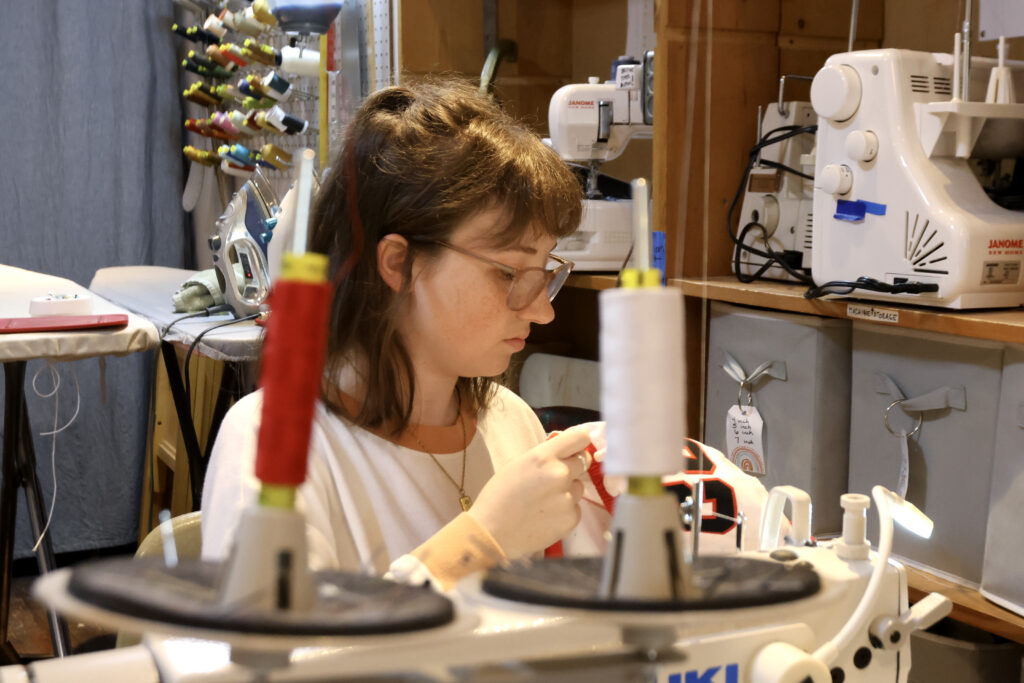
Dangers of Textile Waste
In addition to adding personal value, repairing the football jerseys has an environmental benefit. Covington said repairing clothes and making them last decreases the amount of clothes that enter landfills and oceans. It also reduces the number of textiles that have to be created in the first place.
Covington said because of fast fashion, 85% of textiles end up in landfills. Fast fashion is categorized as clothing that is made quickly and cheaply which follows trends or “microseasons.” When this clothing, typically made of synthetic fibers, ends up in oceans and bodies of water, it releases microplastics into the environment.
According to an article by Yale University, when animals ingest plastics and microplastics, they are ingesting toxic chemicals that accumulate and work their way up the food chain. The long-term impact of microplastics on human health isn’t fully known.
Fast fashion’s impact and the resulting microplastics applies to sportswear as well.
“It depends on the brand, but typically sports apparel is created just like any other fashion garment is, so it would be implicated in what we call fast fashion for sure,” Covington said.
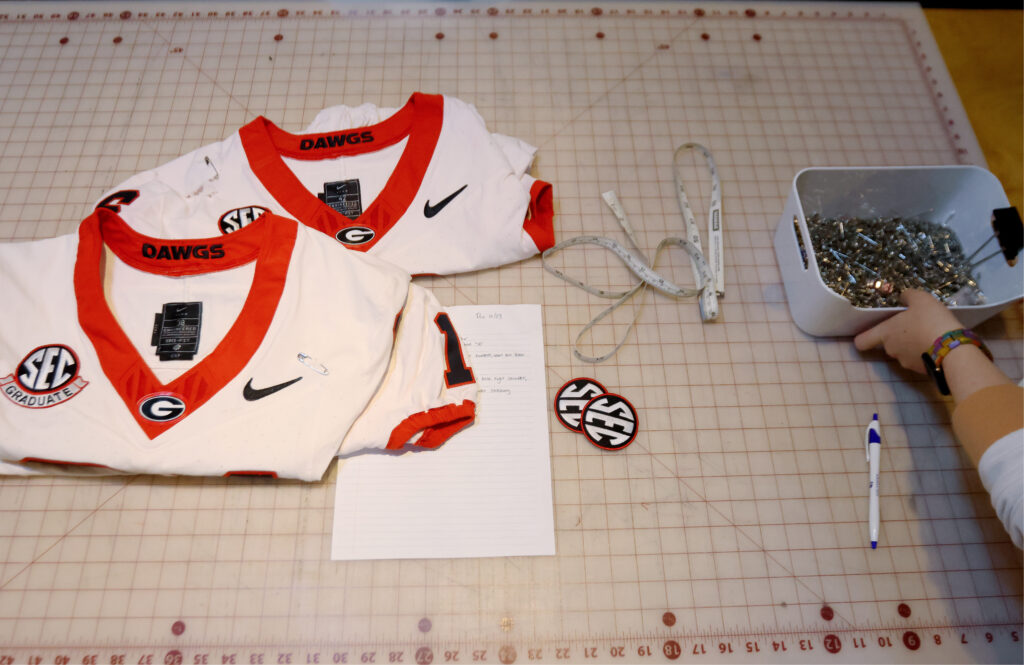
Limiting Textile Waste
Athletic organizations and sports apparel companies worldwide have attempted to address this issue by sustainability sourcing textiles for sportswear. One method is to create jerseys and apparel out of recycled materials. An example is when the University of Miami partnered with Adidas and Parley For The Oceans to create jerseys made out of recycled materials for their 2018 football season.
Georgia football’s jerseys are not made from any notably recycled or sustainable materials. However, Covington said the use of synthetic textiles for jerseys fits the function of sports, but can be improved in their ability to be mended, reused and recycled.
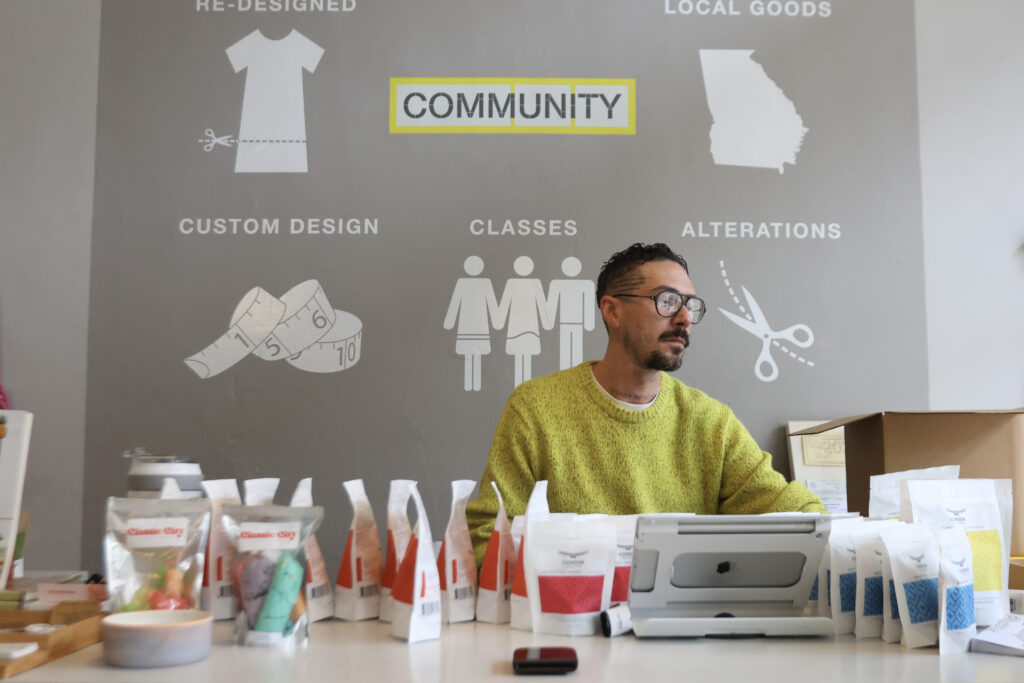
Outside of Community’s work with Georgia football, the boutique works to create what Baumgärtner calls negative waste.
“Growing the business actually has a positive effect on the environment because we produce negative waste,” Baumgärtner said. “We take existing clothing, existing materials that would potentially otherwise end up in the landfill and redesign them and make something new out of them.”
As the Georgia Bulldogs prepare to face Florida State in the Orange Bowl on Dec. 30, 2023, the seamstresses at Community will be ready to tackle more of the battle scars on football jerseys.
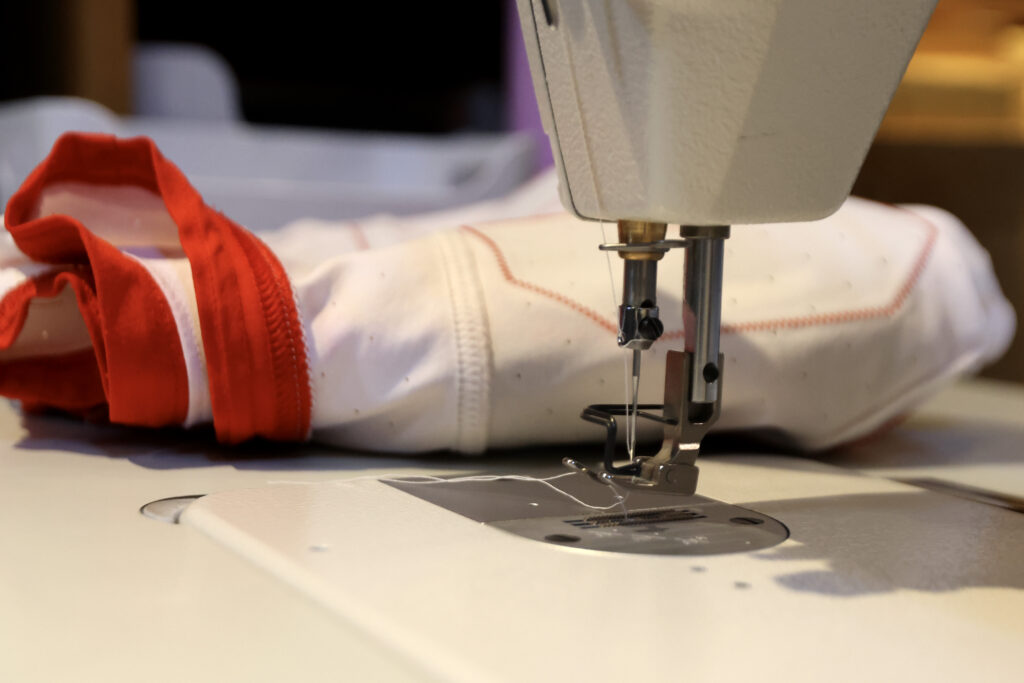
Sophie Ralph is a senior majoring in journalism with a Sports Media Certificate in the Grady College of Journalism and Mass Communication. She also has a Sustainability Certificate, Film Studies minor and Transnational European Studies minor at the University of Georgia.






Show Comments (1)
Erika Ralph
I love the initiative of this effort and am so glad that these jerseys are being reused for both sustainability and sentimental value. The young men who wear them each week should know that it’s the same jersey they wore last week, but touched up with care and attention.